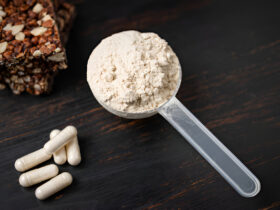When trying to slim down or maintain your weight, you may be eager always to check your weight. While monitoring your progress regularly is a good idea, this can be a source of stress. As you regularly get on and off the scale, one thing you will almost certainly notice is fluctuations in your weight. Weight fluctuations can be wearisome when you do all you can to get in top shape.
Most personal trainers recommend that you focus on your average weekly weight instead of daily fluctuations to avoid this anxiety. These professionals note that daily weight fluctuations are typically due to water retention or loss. This means that the fluctuations you experience may not be due to fat loss or gain. Instead of constantly worrying about the everyday ups and downs, you should consider monitoring your weight using a tracking app like MyFitnessPal. Keep reading to discover some reasons you are experiencing fluctuations in weight.
1. Excessive Water Intake
It is always a good idea to keep your body adequately hydrated during any fitness program. However, your scale number can increase due to excessive water consumption. It is essential to realize that your overall weight comprises not just your body fat but other things like your muscles, waste, fluid, organs, and bones. So, your scale number will rise and fall with water intake.
2. Vigorous Cardio
During a vigorous cardio session, you may suffer minor tissue damage. Blood and water will rush to the area if this occurs to help fix the damage. After the repairs, your muscles get bigger and stronger, but this may cause a transitory increase in your scale number.
3. Strenuous Strength Training Session
Vigorous strength training is another gym activity that can lead to a rise in your blood volume. The rise in blood volume will consequently cause your scale number to increase. If you notice this, there is no cause for alarm, as the number will revert to the previous value after a while.
4. Eating Out
Have you observed that your weight increases after eating out? The culprits are carbs and salt, typically more in restaurant foods than homemade foods. Carbs and salt cause water retention, leading to temporary weight gain.
5. Increase in Carbohydrates Consumption
Most people erroneously avoid eating carbs when trying to slim down, thinking it would cause them to gain weight. The problem lies with consuming much more carbs than what you typically eat in a day. When the body stores carbs, it stores water with it. So, the issue is more with water weight and less with fat loss or gain. You tend to lose weight rapidly when you go on a low carbs diet. The reverse occurs when you stop following the lower-carb diet.
6. Dietary Supplements
You may experience weight fluctuations when taking certain dietary supplements. For example, if you take creatine, you may notice that your muscles appear swollen and fuller. This occurs because creatine promotes the buildup of glycogen and water within the muscles, leading to temporary weight gain.
Final Words
Now you know that fluctuations in weight do not necessarily mean that you are gaining or losing fat. However, if getting on the scale gives you the creeps, you should consider altering how you monitor your progress. You can weigh yourself weekly and take progress photos. This will save the hassle of continually worrying about changes in your scale number.










